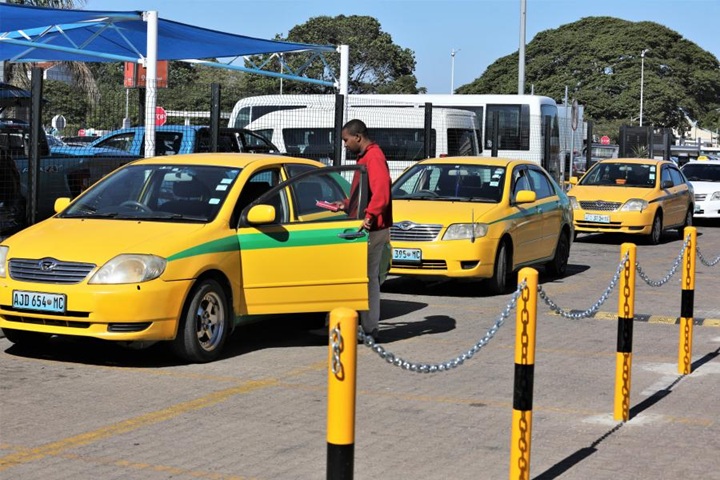Mozambique: CFM is backbone of national economy – Chapo
Mozambique: Ride-hailing apps destroy taxi sector

Photo: Lusa
Aníbal Fernando has been a taxi driver for 30 years, based at the Avenida Hotel in Maputo, but he acknowledges that his livelihood has come to an end with low prices following the arrival of app-based operators, and that it’s time to organise a “funeral” for the activity.
“Unfortunately, we’ll have to organise a funeral with some decency and bury this taxi issue. In general, at the moment I’m talking about, it’s every business that’s not doing well. But for us, it’s the app-based taxis that have put us in this situation,” the taxi driver told Lusa on the streets of the Mozambican capital, while waiting for one of his few daily customers.
Aníbal Fernando says that mobile phone app transport, which has become widespread in Maputo in recent years, charging prices that he says don’t generate a profit, has put an end to the golden age of the conventional taxi, which once had more than 15 cars in the same taxi rank, compared to the current two.
The downturn in business is confirmed by the Maputo City Taxi Drivers Association (Ataxima), which sees ranks and vehicles disappearing from the city’s streets.
“Before the apps, we had around 125 taxi ranks and around 2,000 taxi vehicles in Maputo (…), it was an activity that had been bringing in income, it was an organised activity,” Ataxima spokesman Lucílio Banze explained to Lusa.
The result is that today, there aren’t even 500 vehicles in the Mozambican capital.
“Of the 125 plazas we had, the last time we took stock, last month, there were around 60 in operation. That means we’ve lost more than half of the ranks (…), around 65 ranks have been abolished. They have no vehicles,” he says.
Technology, he says, is “welcome”, but “it’s very poorly structured, disorganised, there’s no orientation”, he criticised, pointing out that conventional taxis are identified with yellow and green colours, unlike the apps, which use any vehicle for personal use.
“We have such a serious spread of fares. Like the chapa [public transport], which is 15 meticais [€0.20] over a distance of 10 kilometres. It’s uniform. You go to Matola, you go to Marracuene, in the Maputo metropolitan area. But it never happens in a taxi. Everyone sets their own price,” says the spokesman.
Ataxima says it is working on revising the municipal regulations that do not accommodate app-based taxis, motorbike taxis or paid rides, and another solution is to include training drivers to improve service.
Even so, mobile phone app transport attracts thousands of drivers spread across the cities of Maputo and Beira (in the centre of the country) because of the low costs.
“We have the tax, we have the insurance, which is taxi insurance, the driver has to have professionals and public services. Whereas app-based taxis no longer have this. So we have to insure the taxi, we have to insure the customers, we have to pay for the finances, and we have to pay for the licence,” said Marta Mussane, a taxi driver in Maputo since 2008.
For Mussane, security is one of the advantages of conventional taxis like hers: whenever a customer forgets something, they can easily locate it.
This preference is borne out by Sara Khan, who uses conventional taxis due to a friend’s recommendation and because she feels they are safe.
“Nowadays, I’m not even belittling it, because I’ve taken Yango [Maputo’s most popular app-based taxi] as well, because it’s a bit cheaper, by the way. But sometimes we don’t know people, do we? We call with the app and end up coming across people who aren’t, so, probably completely trustworthy, it can happen,” he points out.
In terms of attitude, prices and the way they operate, Mozambican taxi drivers are calling for equal treatment in terms of tax obligations.
“Those in charge of this process need to review this, so that we are all, as I would say, on the same scale. Because it’s unfair, one party is favoured and the other party is not taken into account,” concludes Arlindo Lopes, another taxi driver from Maputo city, recalling that just to work he needs a licence that costs 2,000 meticais (€27), while the “apps” pay nothing.













Leave a Reply
Be the First to Comment!
You must be logged in to post a comment.
You must be logged in to post a comment.